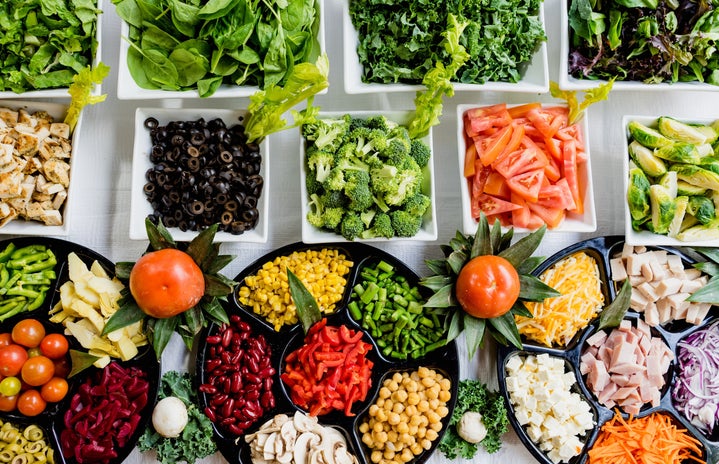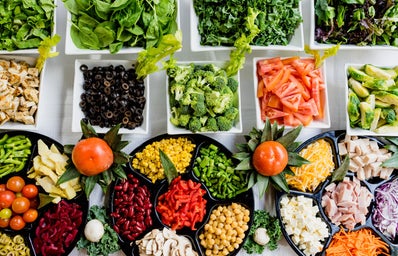The meat industry is often attacked for its unethical treatment of animals and their contribution to global warming. The number one agricultural source of greenhouse gases worldwide is cattle.(1) Furthermore, beef production is one of the most inefficient meats produced in relation to land use and calorie output.(2) In an interview with The Guardian — Joseph Poore from University of Oxford, UK who lead research on reducing food’s environmental impacts through producers and consumers relays that “A vegan diet is probably the single biggest way to reduce your impact on planet Earth, not just greenhouse gases, but global acidification, eutrophication, land use and water use.”(3)
These are all motivating reasons for people to begin reducing the amount of meat they consume, but less discussed is the personal health risks consuming red meat has on the body. Consuming red meat has been linked to the development of diseases, such as: diabetes. Additionally, high intake of processed red meat is associated with a moderate increase in mortality from cardiovascular disease. If that’s not concerning enough, The World Health Organization’s International Agency for Research on Cancer (IARC) has classified processed meat as carcinogenic to humans. Even red meat is associated with colorectal cancer. According to an article published on Science Magazine, the “IARC estimates that 34,000 cancer deaths per year worldwide are attributable to diets high in processed meat, and if the reported associations with red meat were proven to be causal, then diets high in red meat could be responsible for 50,000 cancer deaths per year worldwide.(4)
However, we have to recognize that fresh fruits and vegetables are not accessible to everyone. It is cheaper to buy other foods that won’t perish and foods where you can get a larger quantity for less money. Food deserts in highly populated areas of the US further exacerbate unequal access to food, and other factors like transportation to grocery stores or simply making your own meals is not a realistic factor in people’s lives. Even generally, for most people who regularly consume meat it is unrealistic to completely cut it out of their diet. This is especially true depending on people’s dietary needs.
This is not to say you have to be vegan right now. Small changes can begin to make the biggest difference. If it’s possible, start exploring plant based diets. The benefit of this diet is there are no strings attached! Being plant based just means that you are conscious to choose most of your foods from plant sources. According to The Economist, going vegan for two-thirds of meals could cut food-related carbon emissions by 60%.(5) The health benefits of avoiding meat are lowering your risk of heart disease, high blood pressure, and diabetes according to Harvard Health.(6) If you love to bake and cook, there are so many plant recipes to try, and many alternatives to your favorite dishes! One of my favorite food blogs, COOKIE + kate, features so many holistic recipes for so many different dietary needs! Focus on getting protein from sources like beans, and this can be through something like hummus as well. Adding healthy fats such as avocado to meals are a filling way to get essential nutrients. For desserts, you can make your own plant ice cream at home. I like blending two bananas with around ¾ cup of a plant-based milk and vanilla extract —topping it off with peanut butter and homemade caramel.
You still have agency of your environmental impact, your diet, and your health. This doesn’t require any drastic change — try going plant based!
Further reading
Our World in Data has informative, interactive graphs that you can use to further explore the relations between different food production and land use, land use by calorie output, and more found here: https://ourworldindata.org/environmental-impacts-of-food
Economic analysis of plant based diets: https://digitalcommons.uri.edu/cgi/viewcontent.cgi?article=1613&context=srhonorsprog
COOKIE + kate!
References


